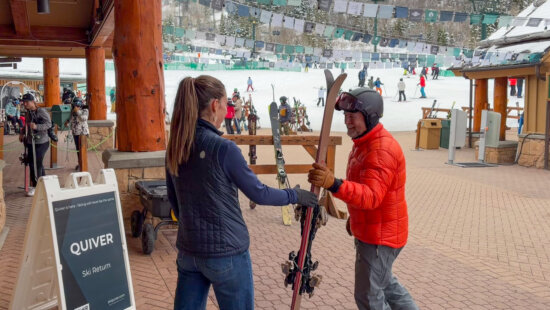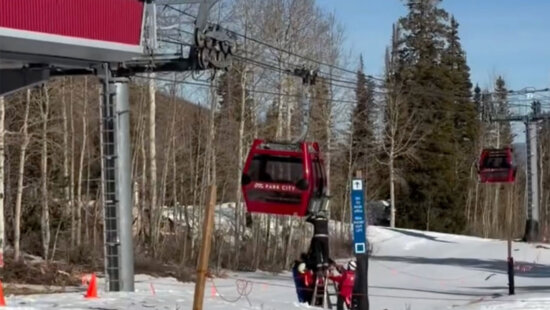Police & Fire
‘Healing isn’t linear’: Inside Park City Police’s victim support program
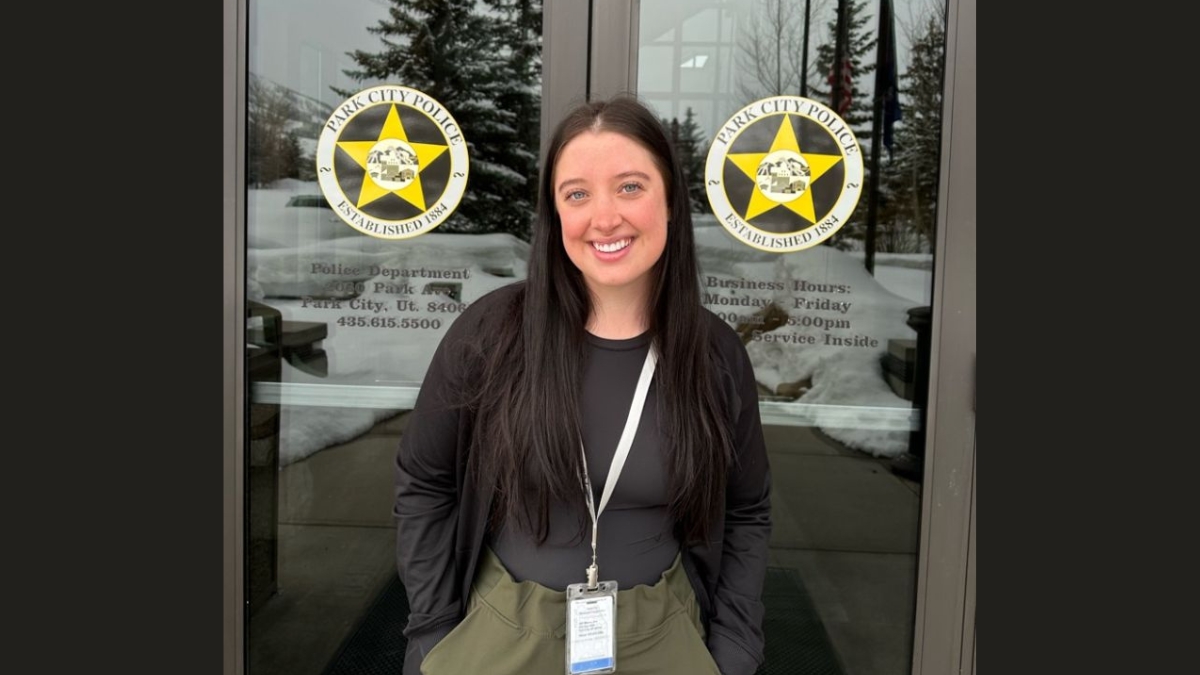
Park City Police Department's Victim Advocate Coordinator Kara Madsen stands in front of the department building, where she works to provide support and resources for victims and survivors of crime. Photo: Kara Madsen
"Victim advocacy is relatively new in policing. There was a gap, and this position was created to address it. Now, we're here to ensure victims and survivors have a voice and a safe space to heal." - Kara Madsen, Victim Advocate Coordinator for PCPD
PARK CITY, Utah—Kara Madsen, the Park City Police Department’s victim advocate coordinator, sees her role as more than a job—it’s a calling to guide victims and survivors through their most challenging times with compassion and care.
“I essentially work with victims and survivors that come into contact with the police department and are going through the criminal justice system in some way,” Madsen said. “A big part of my job is to educate them on their rights and ensure their voice is heard.”
Madsen, who relocated from New York for the position two years ago, described her role as a bridge for survivors navigating an often overwhelming process.
“When you’ve gone through something traumatic, there’s no handbook,” she said. “It can be such a convoluted process, especially when you’re dealing with trauma on top of everything else. This position is here to help empower and educate victims, so they know what’s coming next and feel supported throughout.”
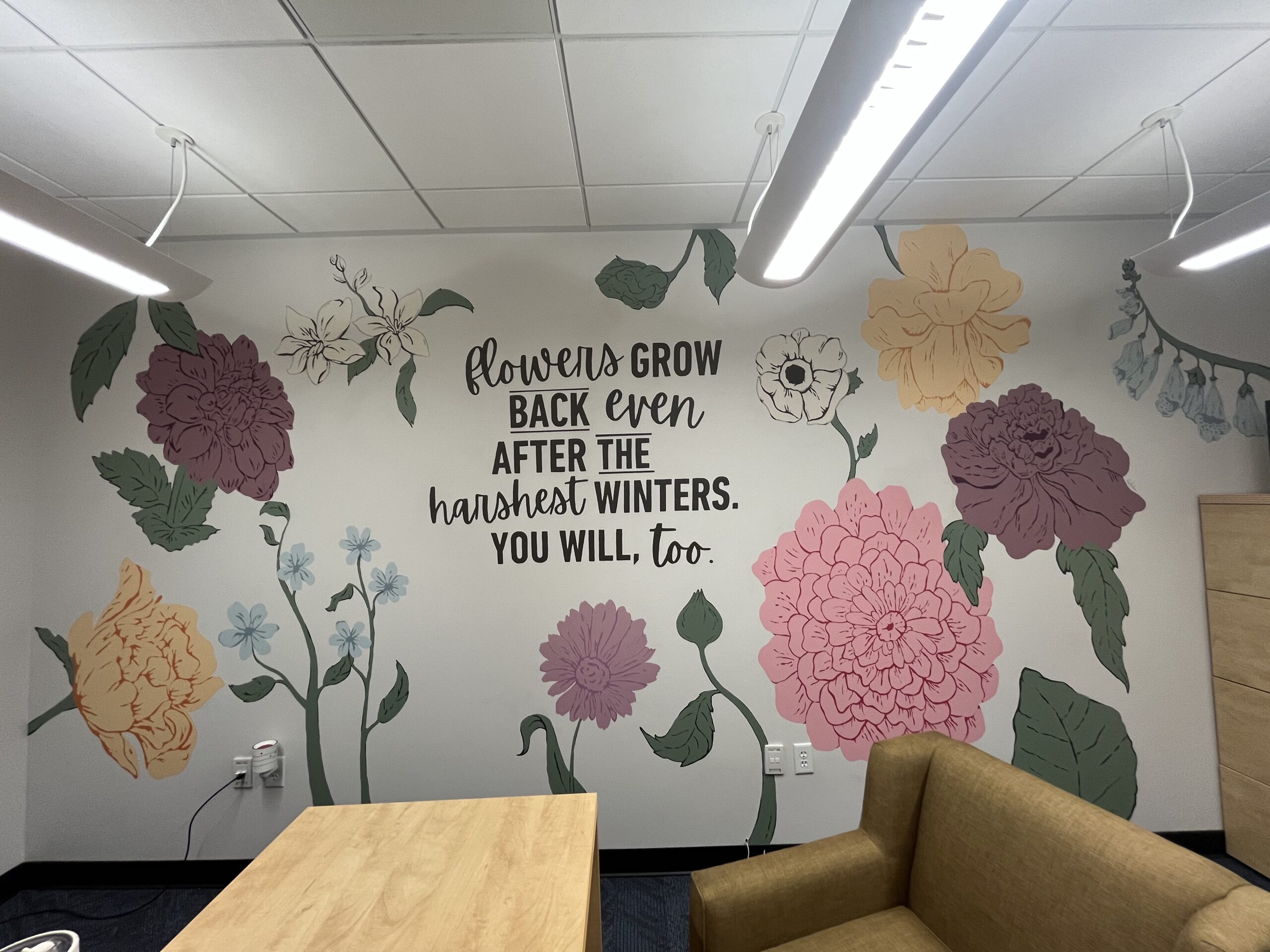
Creating a Safe Space
Madsen has transformed her office into a welcoming and inclusive environment designed to comfort those she serves. A mural by artist Ivy Erickson decorates the walls, featuring uplifting quotes like, “Flowers grow back, even after the harshest winters. You will too.”
“A lot of the time, I have victims and survivors come in here on what might be the hardest day of their life,” Madsen said. “This quote is a good reminder that even at your lowest point, you can rise again.”
Another quote on the mural reads, “Healing isn’t always linear,” a sentiment Madsen finds deeply resonant.
“We sometimes think healing is just an uphill trajectory, but that’s not always how it works,” she said. “There are setbacks, but even if it feels like you’re going backward, you’re still progressing.”
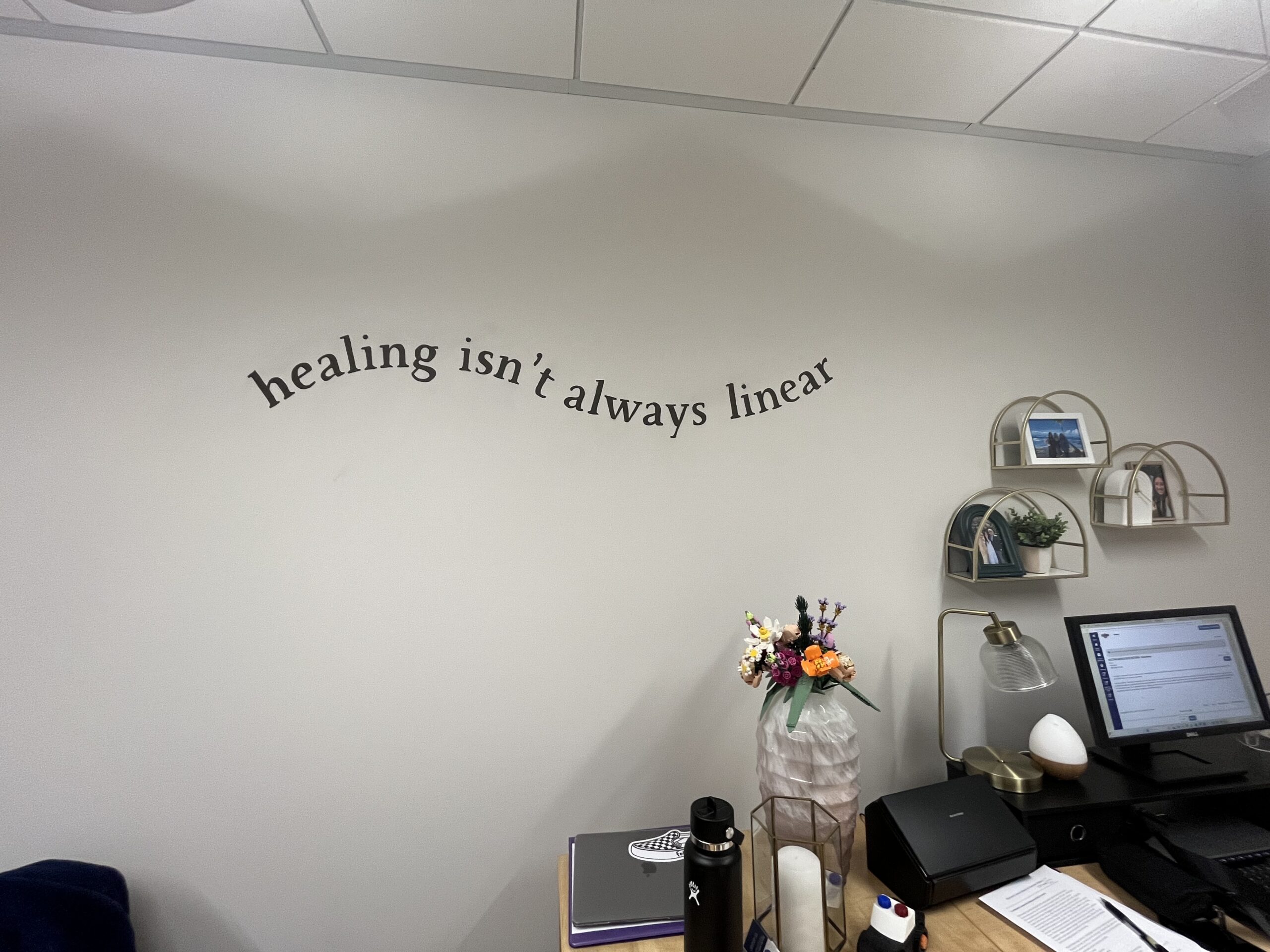
Building Trust and Partnerships
Collaboration is key to Madsen’s work. By partnering with organizations like the Peace House and the Christian Center, she connects victims to resources ranging from shelter to counseling.
“I don’t have my own resources to give, but our community partners are amazing,” she said. “They help provide basic needs and ongoing support for those in crisis.”
Madsen also emphasized the importance of being visible in the community.
“Having our faces out there and people knowing who we are makes a huge difference,” she said. “When someone comes into the police department, they feel more comfortable if they already know me or Officer Rose.”
Officer Jason Rose, who works alongside Madsen, echoed her sentiments.
“With the programs I do, like the Explorer Program and the Latino Academy, I’m always trying to build trust,” Rose said. “I want people to feel they can call me, and they do because they know I’ll listen.”
A Growing Program
Park City’s victim advocacy program started as a part-time, grant-funded role nearly a decade ago. Over time, the position evolved into a full-time role, reflecting the increasing recognition of its importance.
“Victim advocacy is relatively new in policing,” Madsen said. “There was a gap, and this position was created to address it. Now, we’re here to ensure victims and survivors have a voice and a safe space to heal.”
Madsen urged those who may feel hesitant about seeking help to take the first step.
“I’ve met with people in spaces they feel comfortable, like the Peace House, to help ease their anxiety about coming here,” she said. “When they do come in, we can just talk. It doesn’t have to be about what happened. It’s about building trust and making sure they feel safe.”
For Madsen, the mission is clear: “Our number one priority is the victims and survivors. Everything else, we’ll figure out together.”
















